That Monday, the sky over Doha tore open in silence, long before anything confirmed what many of us had sensed throughout the day.
First came the lights — bright, indecipherable streaks, like disoriented stars. That’s how my son interpreted it: “they look like stars, Mom.” My heart clenched in that moment. She was already outside, trying to enjoy the last bearable days of playing outdoors before Qatar’s devastating summer heat claimed all our freedom of choice. Then, a sound I didn’t recognize jolted me from my daze — a nightmare unraveling in real time, with no way for me to influence its ending. A blast that my body understood before my mind did: it froze my bones and taught my heart a new kind of beat.
My ankle was twisted, wrapped in a loose bandage — the kind only a husband’s careful hands could make — a souvenir from a silly fall a few days earlier. But in times of war, even small pains must learn to wait their turn.
My children were outside, and when my son called out — “Mom, look at the sky” — time thickened. The air became heavier, dense with fear and reality. I stepped to the doorway and saw. The sky wasn’t lying.
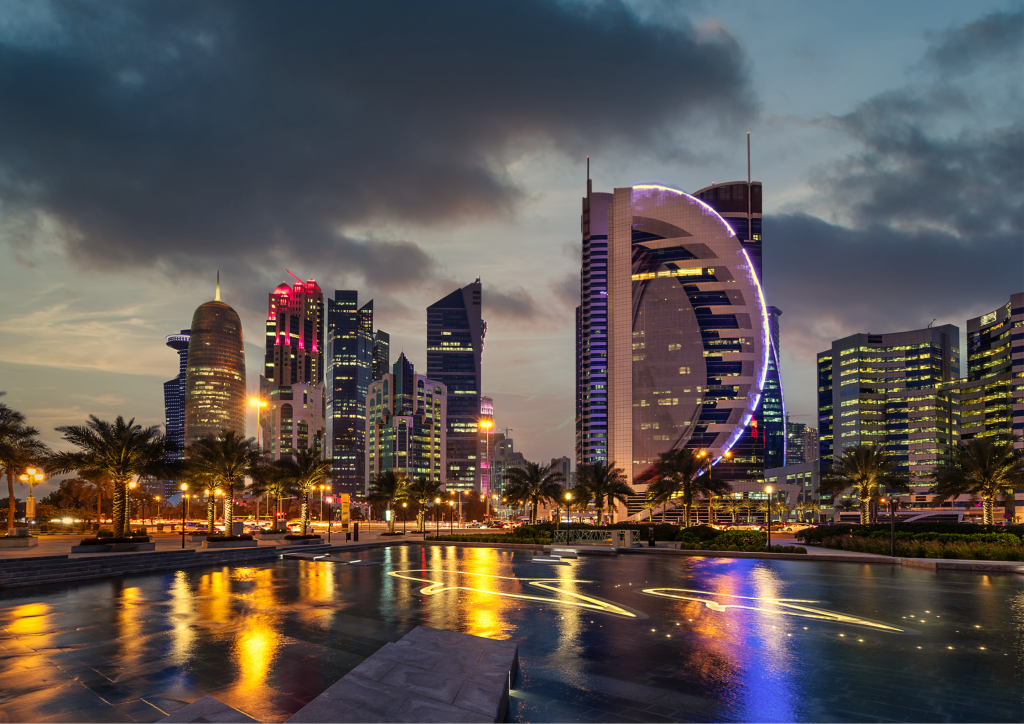
My first instinct was to run after my child, who had just left. The second was hesitation. My ankle cried out. My step failed. And it’s in that in-between that I place myself now, writing. Because in that instant, I did something that still costs me: I delegated.
My son asked if she should go after her brother. And I said yes.“Yes, go after him. Bring him back.”And he went.To my horror, the sounds kept echoing, each blast vibrating through every cell in my body. I saw her getting further away and I ran to call my husband — no explanation, I just shouted:“Go now. Bring our kids home.”And even though he left right after to find them, even though everything turned out fine in the end, the question remained.The one that sits beside me and whispers:
What if?
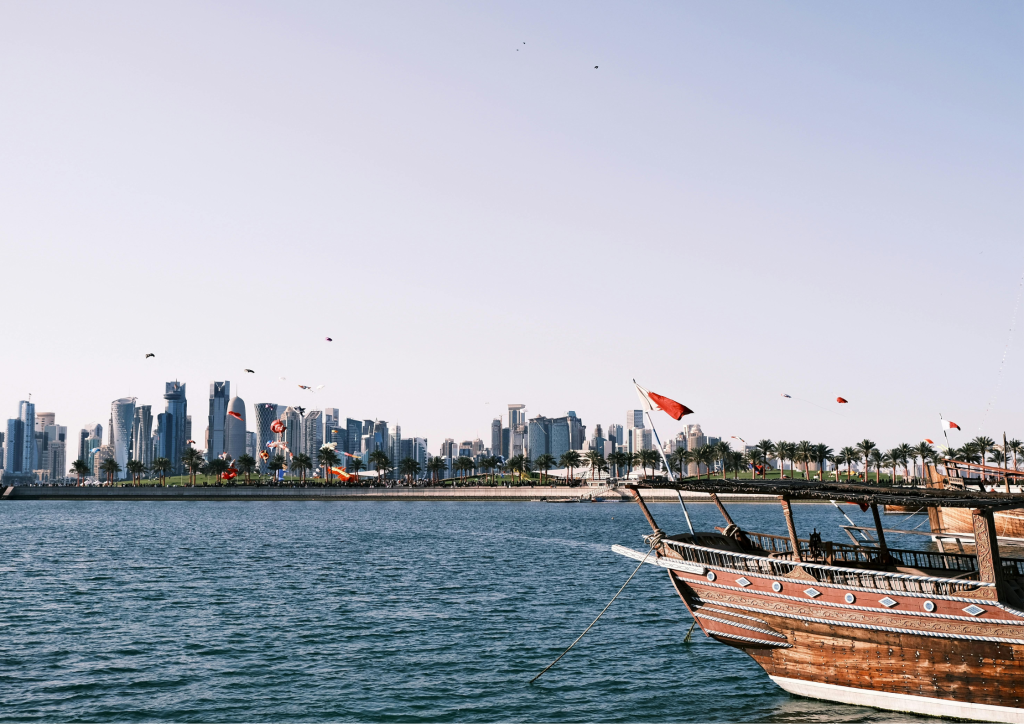
When they returned, there was silence. A silence that wasn’t quite relief, nor fear. something in between. A crack. A narrow opening through which something tried to emerge — something with no space to exist, but an urgent need to be seen. That’s where the awareness bloomed: of what it means to be a mother in times of uncertainty — not as a heroine, but as someone trying not to lose her mind in the face of the uncontrollable.
One of my kids’ voices was the first to find it’s way out:
“What’s happening?”
His question pierced deeper than my prefrontal cortex. It cut through the crack. Our eyes met, searching for meaning in a reality that no longer made sense. And I, unsure of my own voice, could only say:
“I don’t know, baby… let’s stay safe inside until I figure it out.”
Without much care, I climbed the stairs, ignoring the protests of my ankle. I opened the door to the upstairs balcony with all the courage one must gather to go into the world seeking answers. The sky, torn by missiles, froze me. Fire and explosions repeated in rhythm. My whole body trembled. In a silent prayer, I also witnessed the defenses of this country I chose to call home rising — precise, powerful, like the ancestors who once dove deep into the sea and now flew high above it.
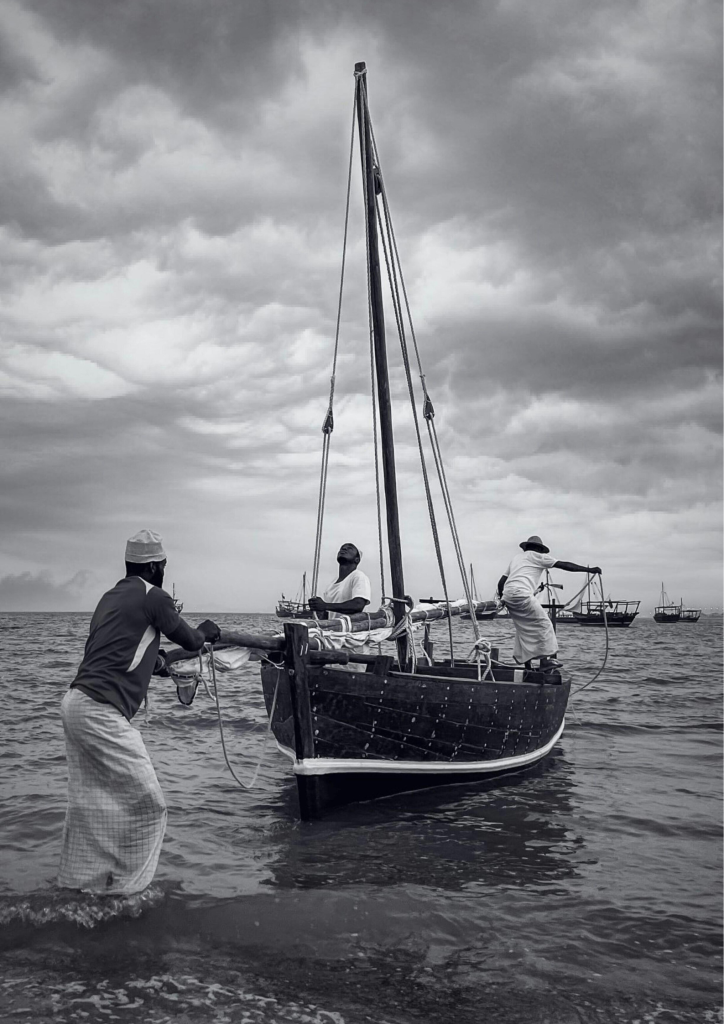
Through the eyes of the next day, it all felt like myth. I remembered the stories I’d heard at the Souq — of Qatari swords and their warriors. A people I’ve grown to admire, who knew how to create pearls where there was once only desert. Swords both merciful and merciless, curved and sharp, designed to cut beyond healing. That’s why they were feared. The flares I saw intercepting the missiles looked just like I imagine them: sending a clear message — we don’t want war, but if you insist, you’ll find only your end.
It’s easy to write about bravery after it’s all over and the dust has settled. Harder is facing your own standards when the world around you collapses into shadow and sound. What hurt the most wasn’t the blast, the lights, or the fear. It was the feeling that, in that moment, I wasn’t the fortress I promised I’d be. It’s the look in my children’s eyes, the ones I held up by a thread before leaving to seek answers — not knowing if they saw in me a guide… or someone who hesitated.
Screams pulled me from my silent prayer. It was a neighbor, being helped by others, hands over her head, completely overtaken by panic. As a health professional — even if holistic — my immediate instinct was to go to her, to use what I know to help, or was I only running from myself I wonder. But as I rushed down the stairs, I understood that what I needed do was already right in front of me.
My son, eyes lost, moving in slow motion. A silent panic attack unfolding between us. I touched his shoulder and asked him to look at me. Another blast — closer now. The walls shook. The floor wobbled. And for the first time, I wondered if we were really just witnessing what we had braced for: a strike on the U.S. base — or was it something more? With so many booms, the earth trembling beneath our feet, I lost myself.
I spiraled. The despair I usually keep under strict guard broke free. Me — the one who only lets despair in when it’s absolutely inevitable — I was taken. And when the ground and the ceiling both tremble, the body understands before the mind: this is real.
It was my son’s eyes that brought me back. His gaze asking for my presence. Calling me back to the role I never get to quit: mother. The one who holds even when she has no arms left. Who gives even when she has nothing. Who protects, if needed, with her own body.
I returned.
He hadn’t moved much. Time had passed, but for him — for us — everything remained suspended, like dust hanging in the sky. I touched his shoulder again. Told him to sit on the couch. To notice the room. Turn on the TV. I wanted to give him a new ground. Even if symbolic. I wanted, amid the chaos, to offer shelter.
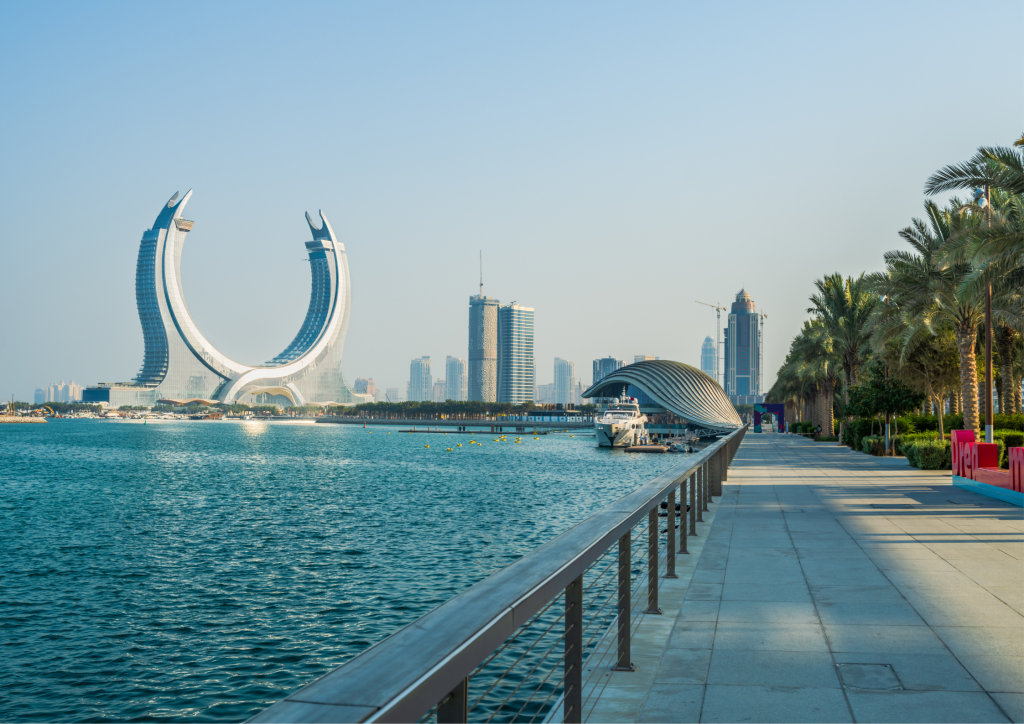
And then, like in other dark chapters of my life, a cold calm settled over me. It wasn’t peace. It was function. Command. The kind of rationality that appears when you have no other choice. I grabbed the passports. Set aside the asthma inhalers. Jackets. Car key. Every step executed with precision — as if the night still held more unraveling ahead.
I called my cousin while setting aside the inhalers — an almost automatic gesture, but full of intention. I needed to say, even without words, how much we were in this together — this Middle Eastern journey of ours. I needed to know she was okay. Just hearing her voice — rushed, breathing heavily, coming down the stairs like she too was running from the weight outside — that was enough. We didn’t say much, but I knew. We were in the same state: survival.
It wasn’t panic. It was action.
Somewhere deep inside me, a lucid voice whispered: some chaos resolves itself if you don’t get in the way. Like waves that crash and retreat. Like a fever that burns out on its own. Sometimes, peace just needs space. Silence. The absence of interference. We stayed inside, under our roof, protected.
Around me, the sounds began to fade. The floor, to stabilize. The children, now watching cartoons, laughed, unaware, but not really, not all of them I noticed it. I was still in execution mode — charging devices, mentally reviewing every detail.
But there are moments — and this was one — when chaos demands action. Energy. Movement. Immediate choice. Knowing the difference between those two is a kind of wisdom you don’t learn by reading. You learn by living.
I bumped into my husband in the hallway — each of us doing what we could to make sense of what we were experiencing. Both silent, operating in parallel universes, trying to bring order to the emotional rupture that struck without warning. A blow we thought we could handle — we had planned for it, after all. But reality betrayed us. It unveiled new layers of who we are.
We didn’t talk much. We simply existed together, there, between fear and laughter. And yes, we laughed.
We laughed because we are Brazilian.
Because that’s how we’ve always coped with our tragedies — with irony, with sharp wit, with improvisation. With all the lemons life throws at us, being Brazilian means making more than lemonade: we crack jokes, we make samba, we throw a party.
Being a Brazilian woman in the Middle East means surviving with tenderness, turning ruins into laughter, and never — ever — forgetting that inside us lives an entire homeland that once learned how to samba through fire… and now dances, with the same fierce grace, across the desert sands.
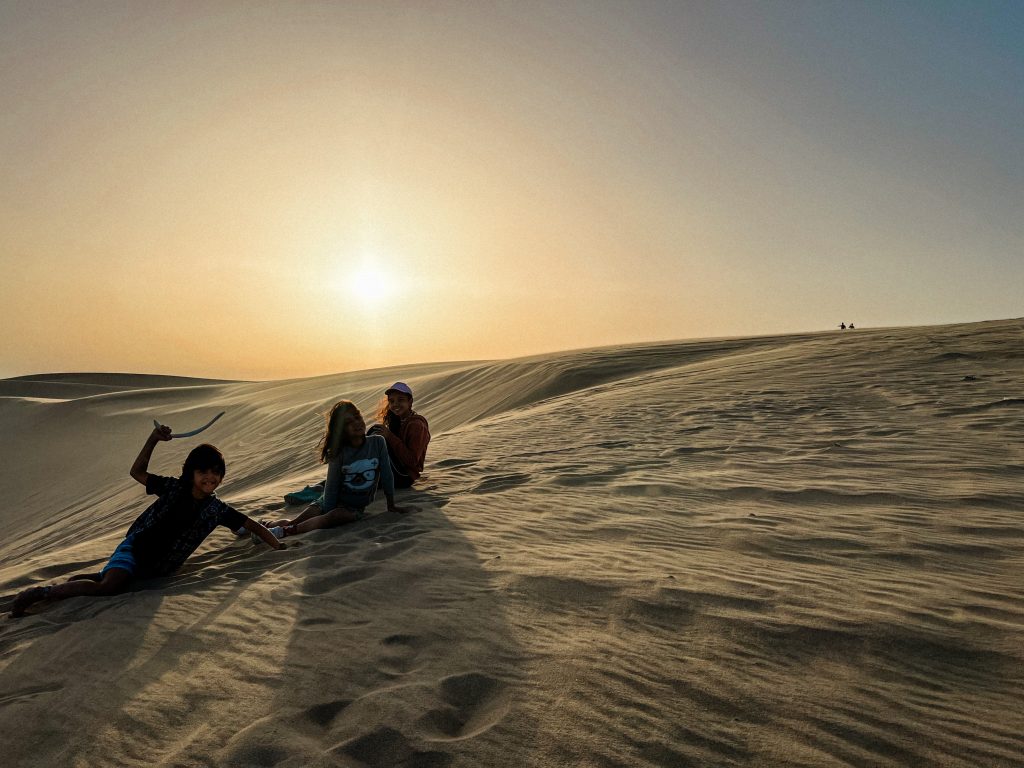
Author’s Note
To protect my family’s privacy, all pronouns and personal references in this text have been intentionally written in the masculine form. Some situations and details have been adapted or anonymized to preserve the identity of those involved, without compromising the emotional truth of the events.


